Types of Fees
To start, there are two different ways lawyers or law firms charge for their fees. The first is called a “retainer”. The second is called a “flat fee”. Both require paying some amount of money up front at the beginning of your case. This is pretty standard for family law cases. It would be rare to find a lawyer or law firm willing to take your case without an upfront fee of some sort or charging a percentage of any money received for a family law case. For the instances where you have a pretty solid case a law firm may take your case and negotiate their fees getting paid during your divorce. However, it is debatable that this could create a conflict of interest in your case for the lawyer to work hard for the best result for themselves and you at the same time. Bottom line, if you plan on beginning or ever being involved with a family law case it is best to have at least a few thousand dollars depending on your case set aside or available on a credit card that you can use to hire a law firm when you need to.
Retainer
The most common type of payment that a lawyer charges is called a retainer. If you read our other post about how much Mitchell & Crunk’s legal services cost, you know a “retainer” is the sum of money you pay upfront that the lawyer is now “held by your lawyer to represent your best interests” and the retainer is used to either pay the lawyer and/or law firm over time, pay filing fees to the court, or pay any other cost associated with your case. This upfront retainer is one area where you can see a lot of variation if you talk to different lawyers.
Some law firms take a very time tested approach of charging a majority, if not all, of what your case will cost to handle upfront, and it’s up to that lawyer to decide how much money that is. This “retainer” is set based on different factors that are important to different law firms to some degree, but the common ones are: expected amount of time to complete a case like yours, what traits or expectations a client has to work with the law firm, and what specific factual situations are present in your case. Does your case have an unclear custody of minor children issue? Does your case involve many assets or types of assets to be divided fairly between the parties? Will a private investigator, custody evaluator, or forensic accountant need to be hired in your case?
Those factors being said, some law firms have a set amount for what to collect as a “retainer” depending on what your case is. It could be a divorce that’s going to be uncontested or contested. They’ll charge a different amount if it’s a child custody modification case, or if it’s an adoption, or a father’s rights legitimation case. They will simply say upfront or after a consultation, that you need to pay X amount of dollars for your “retainer”. For example, this “retainer” style of paying a lawyer is more common for contested cases that have uncertainty how they will end until more and more progress is made in the case. As pricing is commonly different speaking with a more rural law firm or a urban/city law firm, the typical contested retainer in the rural area of Georgia would be around $5-6,000.00 and for a urban/city area of Georgia would be around $4-10,000.00 most likely. Whereas, an uncontested retainer in rural Georgia would be around $2000.00 on average depending on the facts an concerns in your case, and for a urban/city uncontested retainer would be around $3000.00 on average depending on the facts and concerns in your case. A “retainer” allows for the lawyer to know he will get paid for future work that is completed if and when done during the case.
This is also where lawyers can start to develop a questionable reputation because in the clients’ eyes, your lawyer asked for all this money up front, and now you’re left wondering if you made the right choice and how that all money that you just put in your lawyer’s hands is going to be spent. This is where the trust comes in, as stated earlier. Find a lawyer you trust. Trust that they’re going to do what they say they’re going to do and use the money properly just like you would if you were paying it dollar by dollar for your case.
At Mitchell & Crunk, when we use a “retainer” method of payment it is always for contested types of cases. We also on average charge a $4000.00 retainer for contested issues not involving minor children and $5000.00 retainer for contested issues involving minor children. We keep our initial, upfront, retainers to a cost that will be a cost no matter what happens to your case. If your case is coming close to using up most of your retainer, we have a policy to discuss this with you 10 days in advance or more so that you have time to prepare financially. We never surprise our clients with an unknown financial bill from us. We also use “evergreen retainers” when applicable because a case is taking longer than the initial retainer can cover and our clients make payments each month down the road as work is completed to keep the retainer to at least half or more of the initial upfront retainer. Finally, at the close of a case any money left in the retainer that did not pay for the time and expense of the law firm working on your case should be returned to the client.
There are difficulties with retainers. Most of the time the story goes a person paid a $15,000.00 to $20,000.00 initial retainer to cover the cost of their case, possibly even expected to cover the whole cost of their case. Then as the days, weeks, and months go by the law firm works on their case. They hear about some updates about their case and don’t see a lot of progress being made. Then a court date is set and the law firm meets with client to be ready for the hearing in Court. The lawyer then meets with the opposing lawyer either before Court or outside the Court room. They work out some terms to settle the case and the case settles with the client either happy or frustrated they settled. The client finds out all their money is gone in the retainer and they can feel stuck. This scenario is caused by a lack of trust and communication. The client may feel like they paid a whole lot of money up front, the lawyer didn’t do as much as they could have, and then the lawyer kept the money and did not have any retainer left. The law firm on the other hand sees the situation as they were hired to do a job, they did said job and negotiated terms to settle the case and now are paid for each and every item they did to reach the settlement. The law firm sees it as they earned the money. Hopefully you can see how trusting the law firm you hire and good communication can avoid this problem and it becomes a success for everyone. It really cannot be stressed enough.
Flat Fees
The second option that is common to pay a law firm is with a flat fee. This fee means you will pay a set amount of money for the whole of your case. Nothing more, and nothing less. If the case goes quickly and little expense, then the law firm can make more profit from the case. If the case takes longer or has extra expense, then the law firm makes less profit. This is good to think about because no client wants to be known as the client that is making the law firm lose money. The law firm still has an ethical responsibility to handle your case as well as a case they are making money handling, but it isn’t a good feeling and there can be other intangibles in the relationship such as slower communication, for example.
For this reason, flat fees are a good payment option when the amount of work is certain and known by the client and the law firm. Then both know what they are agreeing to do for the other. If the case becomes contested, then each knows how that affects the attorney-client relationship.
Flat fees are commonly requested because of the uncertainty of the retainer payment way of hiring a lawyer. But as explained within this article the retainer is an empowering way to let your law firm go to work for you to their best ability, honoring your expectations, and know they will get paid. With flat fees they become applicable when the amount of work is known, but can be a hindering option when your case changes and because of actions by the opposing party there is now an uncertain amount of work to be done as different terms become contested issues to be resolved in your best interests.
At Mitchell & Crunk we commonly work out Flat Fee arrangements with clients when it is determined after their free 20 min. consult that the situation is most likely not going to lead to uncertainty with an uncertain amount of work to be done as an Uncontested case. We also at times include a provision of adding an additional amount to the “flat fee” amount to increase to a contested “retainer”. The importance being for us to make a profit to sustain our law firm and for our clients to understand their obligations clearly and why the change happened so we both can maintain trust and continue to build that trust stronger.
Payment Plans
The final option that is less common in the legal industry, but we believe at Mitchell & Crunk to be an important price option, are payment plans. Most people do not have several thousand dollars they have been saving in a divorce fund or a child custody modification fund or a father’s rights fund or an adoption fund just waiting for the right day to come along to hire a lawyer and use the money in that fund. Generally, these prices we’ve talked about are a significant cost to the average person and they either have to use a credit card at times, or cash in some retirement benefits, or use a large amount of savings that they had been building up for other things. IF you have the money, that’s great. Then you have purchasing power to make the right decision with a lawyer you trust. If you don’t have those types of funds built up, then a payment plan option can make it work for your case, and still hire a lawyer you trust.
Payment plans with Mitchell & Crunk require additional paperwork to be signed and payment terms of weekly, bi-weekly or for applicable cases, monthly payments to be made within a time frame to pay the retainer amount or the cost of your case expenses amount. You can find an example draft of the types of documents we require clients to sign if they’re going to make payments with our law firm on the website here. You can also see a draft of an example fee agreement that our firm uses for our prices and costs here.












